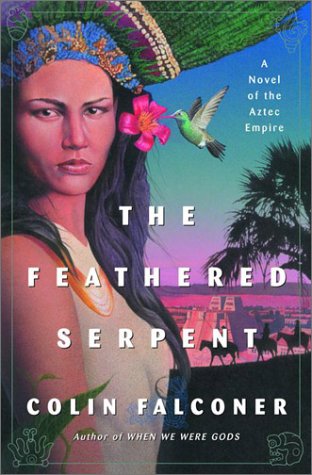Feathered Serpent
The adventurer Hernan Cortés arrives on the coast of Mexico with a handful of men, armor, horses and guns. He proceeds to conquer–read, reduce to smoky ruins–a vast and glorious empire for the eternal glory–or shame–of Spain. This suitably blood-soaked novel is not for the faint-hearted, but it is terrific historical fiction.
Feathered Serpent is part of Crown’s series of women in history, and Falconer’s subject Malinali, Cortés’s Indian translator and later paramour, is a brilliant choice. She is La Llorona, the ghostly woman who roams Mexico weeping for her children, punctuating the tale in first-person, present-tense narrative. On three occasions I thought, “This is a guy writing. A woman would have focused more on the relationships, not on the battle, pivotal though it may be.” But this may help rather than hinder the book’s cross-demographic appeal.
Falconer sets up great conflicts which help us understand the otherwise miraculous-seeming victory. There is Cortés, driven from Spain then Cuba by the straight laces of a culture that cannot find space to recognize his talents. He doesn’t fear death half as much as an ignominious return to the bottom of that hierarchy, and this leads him to acts that seem divine. Malinali certainly sees them as such, helping the conquest in ways not usually credited.
Though sometimes dizzying, the action-flick pace was, in fact, the best part of the book for me: the way Falconer contrives to let us see two or more cultures interpreting the same thing. Also well crafted is the secondary conflict between Benítez, a raw Spanish recruit, and Norte, abandoned on the Yucatan coast many years before. Although this ball is dropped somewhat in the end, Norte may, in fact, be the character whose views as to who the true barbarians are we most readily accept.










